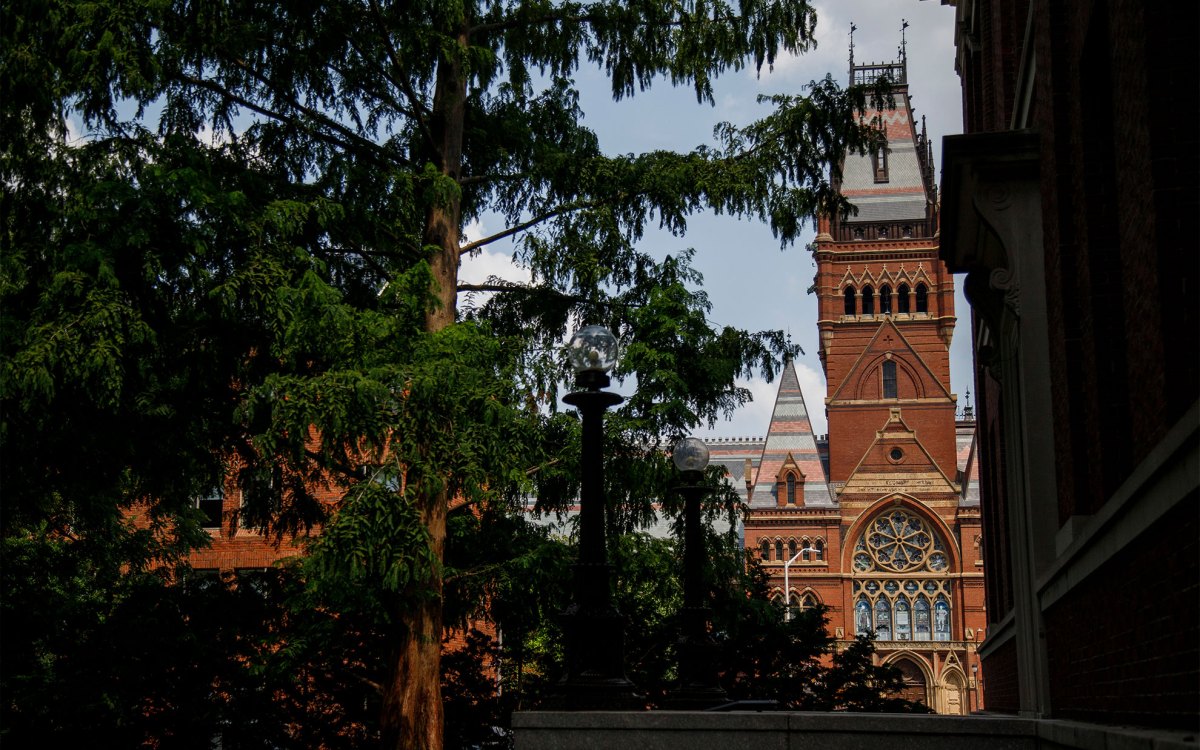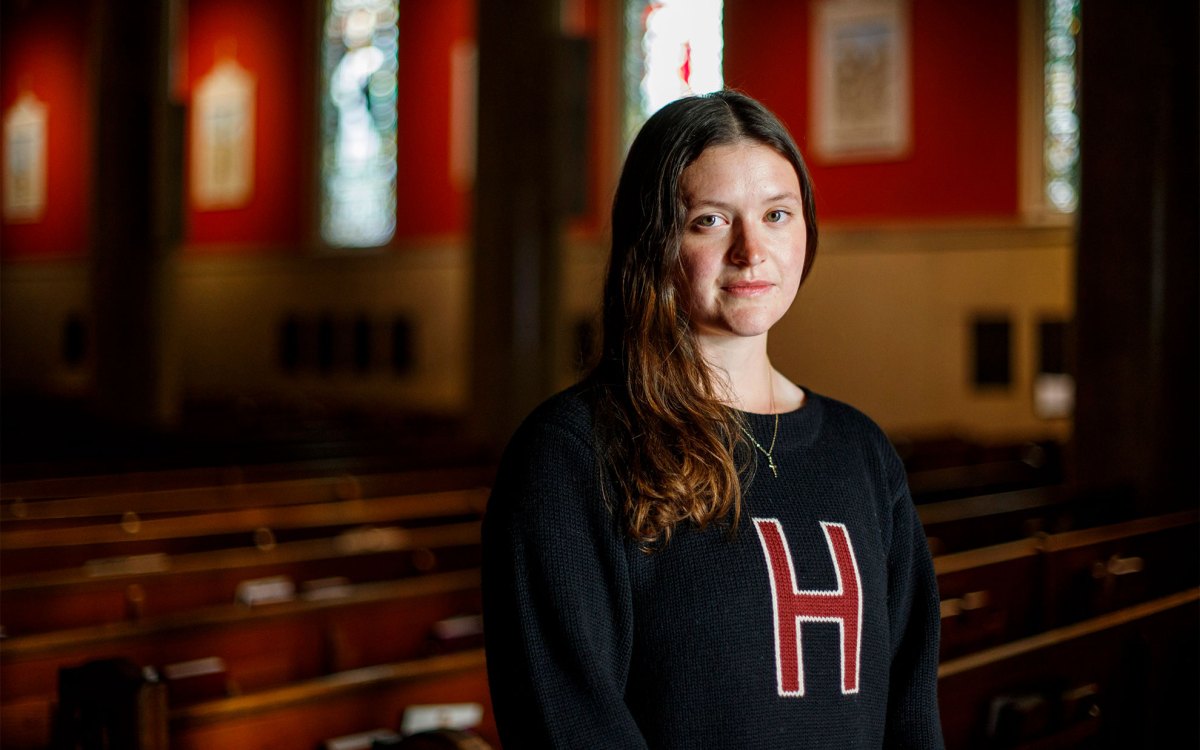Harvard releases inaugural report from newly created Office for Faculty Development and Diversity
Announces $7.5 million in work-life program enhancements
Harvard University today (June 13) released the inaugural report of its newly created Office for Faculty Development and Diversity, along with the announcement of $7.5 million in enhancements to its work-life programs. These enhancements are designed to better support faculty, doctoral students, postdoctoral fellows, and staff as they balance the demands of work and family. The full text of the report is available at http://www.faculty.harvard.edu.
“Harvard is at the beginning of a very long journey. Faculty development and diversity are industry-wide challenges in higher education, particularly for large research universities. While significant progress has been made here at Harvard this year, there is much work to be done to transform this institution,” said Evelynn Hammonds, professor of the history of science and of African and African American studies and the University’s first senior vice provost for faculty development and diversity.
The report provides baseline data on how Harvard is currently performing in terms of the recruitment and promotion of women and underrepresented minority faculty, as well as the first-ever peer comparison of the faculty demographic composition for each of Harvard’s Schools.
Also outlined is progress to date on new efforts to develop scholars at all stages of the academic career ladder – pipeline, recruitment, promotion, and retention – as well as efforts to enhance the institutional culture and leadership necessary to sustain improved performance.
The work presented in this report is part of a systematic effort by the University to realize its aspiration to find, develop, promote, and retain the world’s best scholars. This endeavor grew out of recommendations released in May 2005 by Harvard’s Task Forces on Women Faculty and on Women in Science and Engineering, which centered on the creation of a new capacity in central administration to oversee faculty appointment processes, with a particular charge to increase the representation of women and underrepresented minorities within Harvard’s faculties.
“Harvard is making an unprecedented commitment to University faculty development and diversity. Beyond institutional investment, however, lies the need to foster a change in culture. It is only through our working together – departments, Schools, and central administration – that we will ensure success,” said Provost Steven E. Hyman.
A result of this year’s efforts is a set of enhancements to holistically support scholars and faculty who are balancing the demands of work and family. These feature the creation of University-wide maternity/parental leave guidelines for faculty; the development of additional child care capacity on and near campus; a 53 percent increase in child-care scholarships for faculty and staff, which will make over $2 million available each year; a 50 percent increase in annual operating support for the six Harvard-affiliated child-care centers; and special funding to support the research and professional travel of junior faculty with family responsibilities.
“The desire to have and raise a family should never stand in the way of advancement opportunities at Harvard for any of our faculty, doctoral and postdoctoral scholars, or members of our staff,” said Harvard President Lawrence H. Summers. “These policy enhancements and improvements in faculty development practices, recruitment, hiring, promotion, and retention are critical steps in providing support for everyone who contributes to Harvard’s mission. I would like to thank Senior Vice Provost Hammonds, Provost Hyman, and Vice President Hausammann for their continued leadership on the set of issues, as well as all those who were involved in developing new programs and enhancing existing policies.”
The need for these work-life initiatives was underscored by both the findings of the University’s 2005 Women’s Task Forces and a subsequent dependent care needs assessment commissioned by the University in 2005 to better understand the supports that employees desire to help them integrate their work and family responsibilities.
In addition to the work-life enhancements announced above, in the last 10 months the University has made progress in each of three faculty development spheres. Highlights of these accomplishments include:
Pipeline development, recruitment, promotion, retention
- Supported Harvard College in the development of pilot undergraduate study centers in five key science concentration courses.
- Worked with the College to develop the Harvard College Program for Research in Science and Engineering (PRISE), a new summer residential program for more than 100 Harvard undergraduates conducting research with Harvard faculty.
- Supported a lecture series designed by graduate student women in the sciences to expose the entire graduate student population to issues around women in science.
- Created the first University-wide Office for Postdoctoral Affairs to help improve the quality and productiveness of the postdoctoral training experience at Harvard.
- Established with 25 founding member institutions, the New England Higher Education Recruitment Consortium, a regional resource for recruiting and retention.
- Collaborated with the University Committee on Faculty Development and Diversity to examine faculty search processes to increase the successful recruitment of women, underrepresented minorities, and all faculty.
- Participated fully in University tenure reviews.
- Reviewed over 370 faculty appointment files.
- Provided financial support for the recruitment of 20 faculty across the University, further diversifying 14 departments in nine Schools.
Institutional culture
- Conducted the Collaborative on Academic Careers in Higher Education (COACHE) survey of tenure-track faculty on faculty satisfaction with their employment experience at Harvard.
- Initiated development of a new Harvard-specific climate survey of junior and senior faculty to be conducted next academic year.
- With the Office of the Governing Boards, enhanced guidelines for the Visiting Committees to improve institutional accountability on diversity efforts and results.
Intellectual leadership
- Signed the joint statement by The Nine Presidents Group (“MIT 9”) on gender equity in higher education acknowledging that there are significant steps yet to be taken toward making academic careers compatible with family care-giving responsibilities.
- Gathered successful strategies for increasing representation among faculty of women and underrepresented minorities from counterparts at peer institutions.
- Hosted meetings and events with faculty, staff, and student groups within the University to foster a sense of community among young scholars and ladder faculty, to develop shared understanding of the issues facing Harvard and those (especially women and minorities) who aspire to its tenured faculty, and to advance the collective dialogue.
According to Marilyn Hausammann, Harvard’s vice president for human resources, “There are many things Harvard is doing to enhance its support and benefits for our entire workforce. Improved access to affordable, high-quality child care on or near campus, in the community, or at home is essential to our future as a high-performing institution, as a major employer, and as a world-class university. This is an investment of meaningful resources toward addressing the balancing act that many of our faculty, staff, and doctoral students struggle with every day.”
Harvard University is one of nine leading U.S. universities that have pledged to “develop academic personnel policies, institutional resources, and a culture that supports family commitments.” The University has been honored by Working Mother Magazine three years in a row as one of the “100 Best” organizations. Currently, Harvard is the only university and one of only two Massachusetts employers to be cited for the honor.
“We are fortunate to have Professor Hammonds leading an initiative that can make such an important contribution to maintaining Harvard’s academic excellence in the years to come. I look forward to doing whatever I can to help her efforts succeed,” stated incoming interim President Derek Bok.




